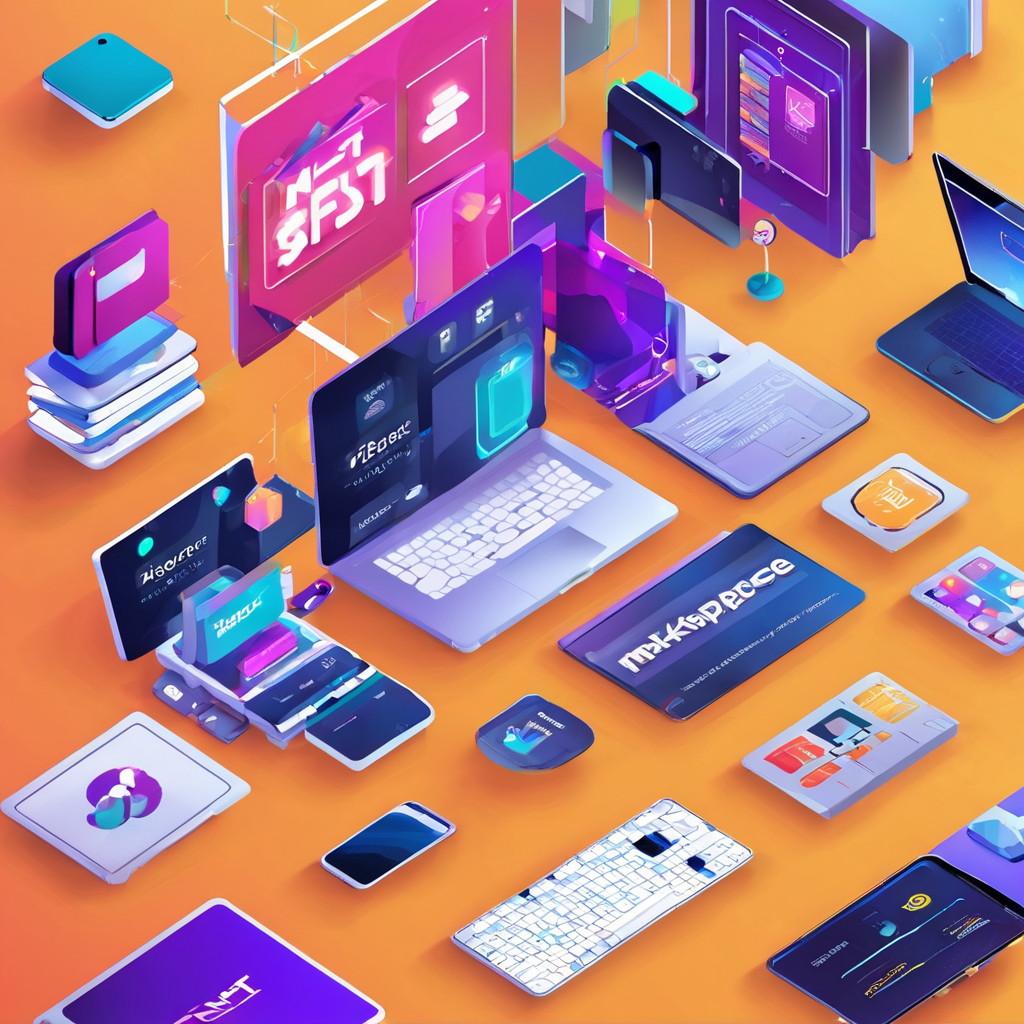The development of NFT marketplaces has been a significant trend in the digital world, revolutionizing the way we buy, sell, and trade digital assets. NFTs, or non-fungible tokens, have gained immense popularity in recent years, with artists, creators, and investors flocking to these platforms to participate in this new digital economy. As the demand for NFTs continues to grow, so does the need for robust and user-friendly marketplaces where these unique digital assets can be bought and sold securely.
One of the key aspects of NFT marketplace development is creating a seamless user experience. User-friendly interfaces and intuitive navigation are essential to attract and retain users on these platforms. Developers are constantly striving to enhance the overall user experience by incorporating features such as easy account creation, smooth browsing capabilities, and secure payment options. The goal is to make the process of buying and selling NFTs as simple and efficient as possible for both newcomers and experienced users alike.
Security is another crucial factor in NFT marketplace development. With the value of NFTs skyrocketing and attracting significant investments, ensuring the security of these digital assets is paramount. Developers employ advanced encryption technologies and security protocols to protect users’ assets and personal information from potential cyber threats. Additionally, implementing robust authentication measures and regular security audits help mitigate the risk of fraud and unauthorized access on these platforms.
Interoperability is an emerging trend in NFT marketplace development, allowing users to seamlessly trade assets across different platforms and blockchains. Cross-chain compatibility enables users to leverage the unique features of multiple blockchain networks, expanding the reach and liquidity of their NFT collections. Developers are working on creating interoperable standards and protocols to facilitate smooth asset transfers and transactions between various NFT marketplaces.
Community engagement plays a vital role in the success of NFT marketplaces. Building a vibrant and active community around a marketplace fosters trust, encourages user participation, and drives innovation within the ecosystem. Developers often integrate social features such as chat forums, user profiles, and community events to facilitate interaction and collaboration among users. Engaging with the community not only enhances the overall user experience but also strengthens the marketplace’s brand and reputation in the NFT space.
Smart contract integration is a fundamental aspect of NFT marketplace development, enabling automated transactions and secure asset transfers on the blockchain. Smart contracts are self-executing contracts with predefined rules and conditions that facilitate peer-to-peer transactions without the need for intermediaries. By incorporating smart contracts into NFT marketplaces, developers ensure transparency, immutability, and trust in the buying and selling process, enhancing the overall integrity of the platform.
Scalability is a critical consideration in NFT marketplace development, especially as the demand for NFTs continues to surge. Scalable infrastructure and robust technology solutions are essential to support the growing user base and transaction volume on these platforms. Developers employ scalable blockchain networks, cloud-based storage solutions, and load-balancing techniques to ensure smooth performance and uninterrupted service for users, even during peak traffic periods.
Regulatory compliance is a significant challenge for NFT marketplaces, as the legal landscape surrounding digital assets is still evolving. Developers must navigate complex regulatory frameworks and ensure compliance with anti-money laundering (AML) and know your customer (KYC) regulations to prevent illicit activities on their platforms. Implementing robust compliance measures and partnering with legal experts help NFT marketplaces operate within the boundaries of the law and maintain a trustworthy reputation in the industry.
Innovation is at the core of NFT marketplace development, driving continuous advancements and enhancements in the digital asset space. Developers are constantly exploring new technologies such as augmented reality (AR), virtual reality (VR), and artificial intelligence (AI) to create immersive and interactive experiences for NFT users. By pushing the boundaries of innovation, NFT marketplaces can differentiate themselves in a competitive market landscape and attract a diverse range of users and creators.
In conclusion, the development of NFT marketplaces is reshaping the digital economy and redefining how we perceive and interact with digital assets. With a focus on user experience, security, interoperability, community engagement, smart contract integration, scalability, regulatory compliance, and innovation, developers are paving the way for a more inclusive, transparent, and vibrant NFT marketplace ecosystem. As the NFT market continues to evolve, we can expect to see even more groundbreaking developments that will further revolutionize the way we buy, sell, and collect digital assets in the future.
